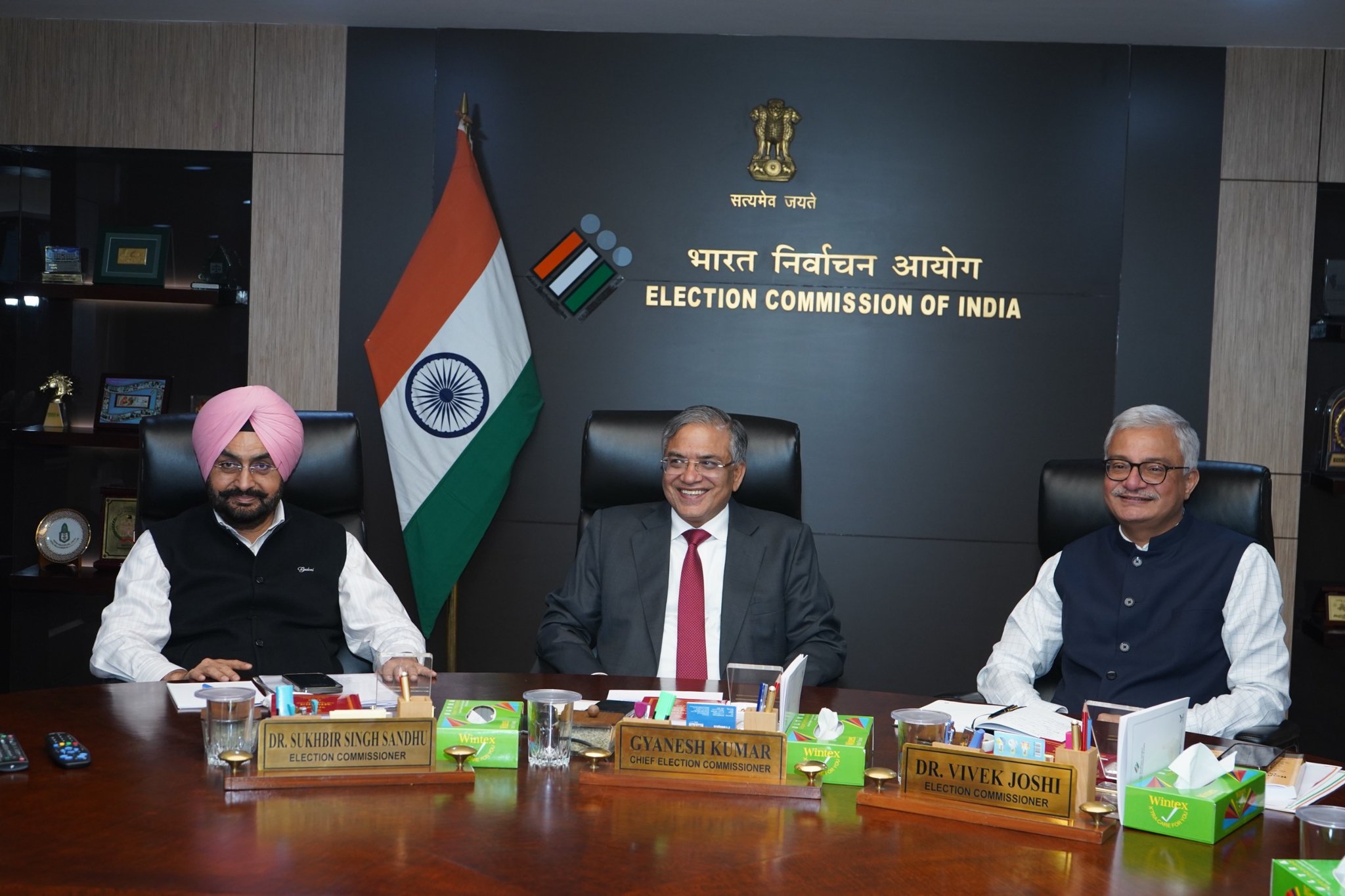ECI Announces Bihar Assembly Election Schedule, Enforces Strict Model Code of Conduct
In its directive, the ECI reiterated that the credibility of India’s democratic system rests on the integrity and impartiality of the electoral process.

- Country:
- India
The Election Commission of India (ECI), on October 6, 2025, announced the schedule for the General Election to the Legislative Assembly of Bihar, setting into motion one of the most closely watched state elections in the country. With the announcement, the Model Code of Conduct (MCC) came into immediate effect across Bihar, marking the official start of the election process.
The ECI has issued detailed directives to the Chief Secretary and the Chief Electoral Officer (CEO) of Bihar to ensure strict adherence to the Model Code of Conduct, which serves as the framework for maintaining free, fair, and ethical elections. The Commission has also clarified that the MCC will apply to the Central Government insofar as it concerns announcements or policy decisions relating to Bihar.
Strict Enforcement of Model Code of Conduct Begins
In its notification, the ECI underscored that all political parties, candidates, and government officials must comply with the MCC guidelines without exception. Among the first directives are those pertaining to the removal of defacement from government, public, and private properties, and the prohibition of misuse of government vehicles, accommodation, or resources for electioneering.
Further, no advertisements are to be issued at the cost of the public exchequer by the state or central government departments during the MCC period. The Commission also reminded political parties and candidates that privacy of citizens must be respected — no demonstrations, picketing, or campaign activities are allowed outside private residences.
Additionally, flags, posters, or banners may not be displayed on private buildings, walls, or premises without explicit consent from the property owner, reinforcing the emphasis on ethical campaign practices.
Complaint Redressal and Vigilance Mechanisms Strengthened
To ensure transparency and responsiveness, the ECI has activated a complaint monitoring system, which includes a 24x7 Call Centre (1950). Citizens, political parties, or candidates can use this service to lodge complaints directly with the concerned District Election Officer (DEO) or Returning Officer (RO) regarding any violation of the MCC.
Additionally, the ECI’s C-Vigil mobile app, available on ECINET, enables citizens to report real-time MCC violations such as bribery, voter inducement, or misuse of government resources. To ensure swift action, 824 flying squads have been deployed across Bihar, tasked with responding to verified complaints within 100 minutes of receipt.
This system, the Commission said, aims to strengthen citizen participation in election monitoring, ensuring immediate accountability for violations and reinforcing public trust in the democratic process.
Guidelines for Political Parties and Ministers
Political parties have been instructed to inform police authorities in advance of any public meetings, rallies, or processions to facilitate traffic management and security arrangements. Permissions must also be obtained for use of loudspeakers, public address systems, and venues, in accordance with local prohibitory orders and environmental regulations.
Ministers have been prohibited from combining official duties with political activities or using government machinery, transport, or personnel for campaign purposes. The ECI clarified that even official tours must not be used to indirectly promote the electoral interests of any political party.
The Commission also ordered a complete ban on the transfer or posting of all officers and officials directly or indirectly involved in election duties. This includes administrative, police, and revenue officers, ensuring that the election process remains neutral and free from political interference.
Ensuring Equal Opportunity and Access to Public Resources
In a bid to maintain fairness in the campaign process, the ECI directed that public places such as maidans, helipads, and auditoriums must be equally accessible to all political parties and candidates on identical terms and conditions.
The SUVIDHA module on ECINET has been activated, allowing parties to apply online for permissions to use public spaces for rallies and meetings. Allocation of venues will be conducted on a first-come, first-served basis, ensuring transparency and equal opportunity for all contesting groups.
The ECI further instructed district authorities to ensure fair regulation of public gatherings, processions, and polling arrangements. All officials have been directed to act impartially and diligently, safeguarding law and order while ensuring equal treatment of all political parties and candidates.
Commitment to Credible, Transparent Elections
In its directive, the ECI reiterated that the credibility of India’s democratic system rests on the integrity and impartiality of the electoral process. It urged officials at every level to maintain vigilance, neutrality, and professionalism throughout the election period.
The Commission also emphasised the importance of public cooperation in reporting violations, maintaining peace, and respecting the sanctity of the electoral code. It assured citizens that every complaint received through the 1950 helpline or C-Vigil app would be investigated promptly and transparently.
As Bihar prepares for another democratic exercise, the ECI’s proactive steps highlight its determination to conduct free, fair, inclusive, and ethical elections — strengthening the world’s largest democracy, one election at a time.










